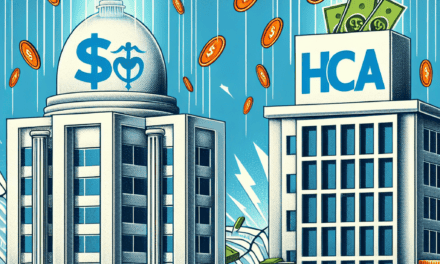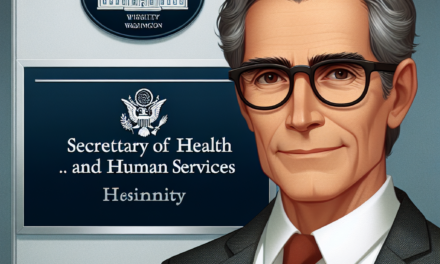Texas Judge Overturns Biden Administration’s Nursing Home Mandate
The Biden administration’s nursing home mandate, which aimed to ensure that nursing home staff are vaccinated against COVID-19, has been a contentious issue since its inception. In a significant legal development, a Texas judge recently overturned this mandate, igniting a debate over public health, individual rights, and the responsibilities of healthcare facilities. This article delves into the implications of this ruling, the background of the mandate, and the broader context of vaccination policies in healthcare settings.
Background of the Nursing Home Mandate
The nursing home mandate was introduced as part of the Biden administration’s broader strategy to combat the COVID-19 pandemic. The Centers for Medicare & Medicaid Services (CMS) issued the mandate in late 2021, requiring that all staff at facilities receiving Medicare and Medicaid funding be fully vaccinated against COVID-19. The rationale behind this policy was to protect vulnerable populations residing in nursing homes, who are at a higher risk of severe illness from the virus.
Prior to the mandate, nursing homes had already been grappling with the challenges posed by the pandemic. Many facilities experienced outbreaks that led to significant morbidity and mortality among residents. The mandate was seen as a necessary step to ensure that healthcare workers, who interact closely with these vulnerable individuals, are vaccinated to reduce the risk of transmission.
However, the mandate faced immediate pushback from various stakeholders, including healthcare workers, state officials, and legal experts. Critics argued that the mandate infringed upon individual rights and could exacerbate staffing shortages in an already strained healthcare system. The legal challenges began to mount, culminating in the recent ruling by a Texas judge.
The Texas Judge’s Ruling
In a landmark decision, a Texas judge ruled against the Biden administration’s nursing home mandate, stating that it overstepped federal authority and violated the rights of healthcare workers. The judge’s ruling was based on several key arguments:
- Federal Overreach: The judge argued that the federal government does not have the authority to impose such mandates on state-run facilities, emphasizing the principle of states’ rights.
- Impact on Staffing: The ruling highlighted concerns that the mandate could lead to significant staffing shortages in nursing homes, as many workers were unwilling to comply with the vaccination requirement.
- Individual Rights: The judge underscored the importance of personal choice in medical decisions, asserting that individuals should have the right to make their own healthcare choices without government interference.
This ruling has significant implications for the future of vaccination mandates in healthcare settings. It raises questions about the balance between public health initiatives and individual rights, as well as the role of federal versus state authority in healthcare policy.
Implications for Public Health Policy
The overturning of the nursing home mandate by a Texas judge has far-reaching implications for public health policy, particularly in the context of vaccination efforts. The ruling could set a precedent for similar legal challenges against vaccination mandates in other sectors, potentially undermining public health initiatives aimed at controlling infectious diseases.
One of the primary concerns is that the ruling may embolden other states to challenge federal mandates, leading to a patchwork of vaccination policies across the country. This could create confusion and inconsistency in public health messaging, making it more difficult to achieve widespread vaccination coverage.
Moreover, the ruling raises questions about the effectiveness of vaccination mandates in healthcare settings. While proponents argue that such mandates are essential for protecting vulnerable populations, opponents contend that they may lead to resistance among healthcare workers and exacerbate staffing shortages. The following points illustrate the potential consequences:
- Increased Vaccine Hesitancy: The ruling may contribute to a growing sentiment of vaccine hesitancy among healthcare workers, who may feel that their autonomy is being compromised.
- Staffing Challenges: Nursing homes and other healthcare facilities may struggle to maintain adequate staffing levels if a significant number of workers refuse to comply with vaccination mandates.
- Public Trust: The legal battle surrounding the mandate could erode public trust in health authorities and government agencies, making it more challenging to promote vaccination efforts in the future.
As public health officials grapple with these challenges, it is crucial to find a balance between protecting vulnerable populations and respecting individual rights. This may involve exploring alternative strategies to encourage vaccination, such as education and outreach efforts, rather than imposing mandates.
Reactions from Stakeholders
The Texas judge’s ruling has elicited a wide range of reactions from various stakeholders, reflecting the deeply polarized nature of the debate surrounding vaccination mandates. Healthcare workers, facility administrators, public health officials, and legal experts have all weighed in on the implications of the ruling.
Healthcare workers have expressed mixed feelings about the ruling. Some have welcomed the decision as a victory for personal choice and autonomy, arguing that individuals should have the right to make their own healthcare decisions without government interference. Others, however, have voiced concerns about the potential risks posed by unvaccinated colleagues, particularly in settings where vulnerable populations reside.
Facility administrators have also reacted to the ruling with a sense of uncertainty. Many nursing homes were already struggling with staffing shortages prior to the mandate, and the overturning of the requirement may exacerbate these challenges. Some administrators worry that the ruling could lead to a decline in vaccination rates among staff, putting residents at greater risk of COVID-19 outbreaks.
Public health officials have expressed disappointment with the ruling, emphasizing the importance of vaccination in controlling the spread of infectious diseases. They argue that mandates are a necessary tool for protecting vulnerable populations and ensuring the safety of healthcare environments. Public health advocates are concerned that the ruling may undermine efforts to achieve herd immunity and control the pandemic.
Legal experts have also weighed in on the implications of the ruling, noting that it could set a precedent for future legal challenges against vaccination mandates in other sectors. Some argue that the ruling may embolden states to push back against federal authority, potentially leading to a fragmented approach to public health policy across the country.
Case Studies: Nursing Home Outbreaks and Vaccination Rates
To understand the context of the nursing home mandate and the implications of its overturning, it is essential to examine case studies of nursing home outbreaks and vaccination rates. These examples illustrate the challenges faced by nursing homes during the pandemic and the role of vaccination in mitigating risks.
One notable case is the outbreak at a nursing home in Washington state in early 2020, which was one of the first major outbreaks of COVID-19 in the United States. The facility experienced a rapid spread of the virus, resulting in numerous infections and fatalities among residents. This outbreak highlighted the vulnerability of nursing home populations and underscored the need for effective infection control measures.
In response to such outbreaks, vaccination efforts were ramped up in nursing homes across the country. According to data from the Centers for Disease Control and Prevention (CDC), vaccination rates among nursing home staff have varied significantly by state and facility type. As of mid-2022, some states reported vaccination rates exceeding 90%, while others struggled to reach even 50% compliance among staff.
For example, a nursing home in New York reported a vaccination rate of 95% among its staff, which contributed to a significant reduction in COVID-19 cases among residents. In contrast, a facility in Texas reported a vaccination rate of only 60%, leading to several outbreaks and increased hospitalizations among residents.
These case studies illustrate the critical role of vaccination in protecting vulnerable populations in nursing homes. They also highlight the challenges faced by facilities in achieving high vaccination rates among staff, particularly in the face of mandates and legal challenges. The overturning of the nursing home mandate in Texas raises questions about how facilities will navigate these challenges moving forward.
Looking Ahead: The Future of Vaccination Mandates
The recent ruling by a Texas judge has opened the door to a broader discussion about the future of vaccination mandates in healthcare settings. As the legal landscape continues to evolve, several key considerations will shape the direction of vaccination policies moving forward.
First and foremost, the balance between public health and individual rights will remain a central theme in the debate over vaccination mandates. As more states challenge federal authority, it will be essential to find common ground that respects individual autonomy while also prioritizing the health and safety of vulnerable populations.
Additionally, healthcare facilities will need to explore alternative strategies to encourage vaccination among staff. This may involve implementing educational programs that address vaccine hesitancy, providing incentives for vaccination, and fostering a culture of safety within healthcare environments.
Furthermore, ongoing monitoring of vaccination rates and infection control measures will be crucial in assessing the effectiveness of policies aimed at protecting nursing home residents. Facilities will need to remain vigilant in their efforts to prevent outbreaks and ensure that staff are equipped with the necessary resources to provide safe care.
Finally, as new variants of COVID-19 continue to emerge, the landscape of vaccination policies may shift once again. Public health officials will need to remain adaptable and responsive to changing circumstances, ensuring that policies are evidence-based and aligned with the latest scientific guidance.
Conclusion
The Texas judge’s ruling to overturn the Biden administration’s nursing home mandate has sparked a significant debate over public health policy, individual rights, and the responsibilities of healthcare facilities. As stakeholders grapple with the implications of this ruling, it is clear that the future of vaccination mandates in healthcare settings remains uncertain.
While the ruling may be seen as a victory for personal choice, it also raises important questions about the balance between protecting vulnerable populations and respecting individual autonomy. As healthcare facilities navigate these challenges, it will be essential to explore alternative strategies to encourage vaccination and ensure the safety of residents.
Ultimately, the ongoing dialogue surrounding vaccination mandates will shape the future of public health policy in the United States. As we move forward, it is crucial to prioritize the health and safety of vulnerable populations while also respecting individual rights and fostering a culture of trust within healthcare environments.




